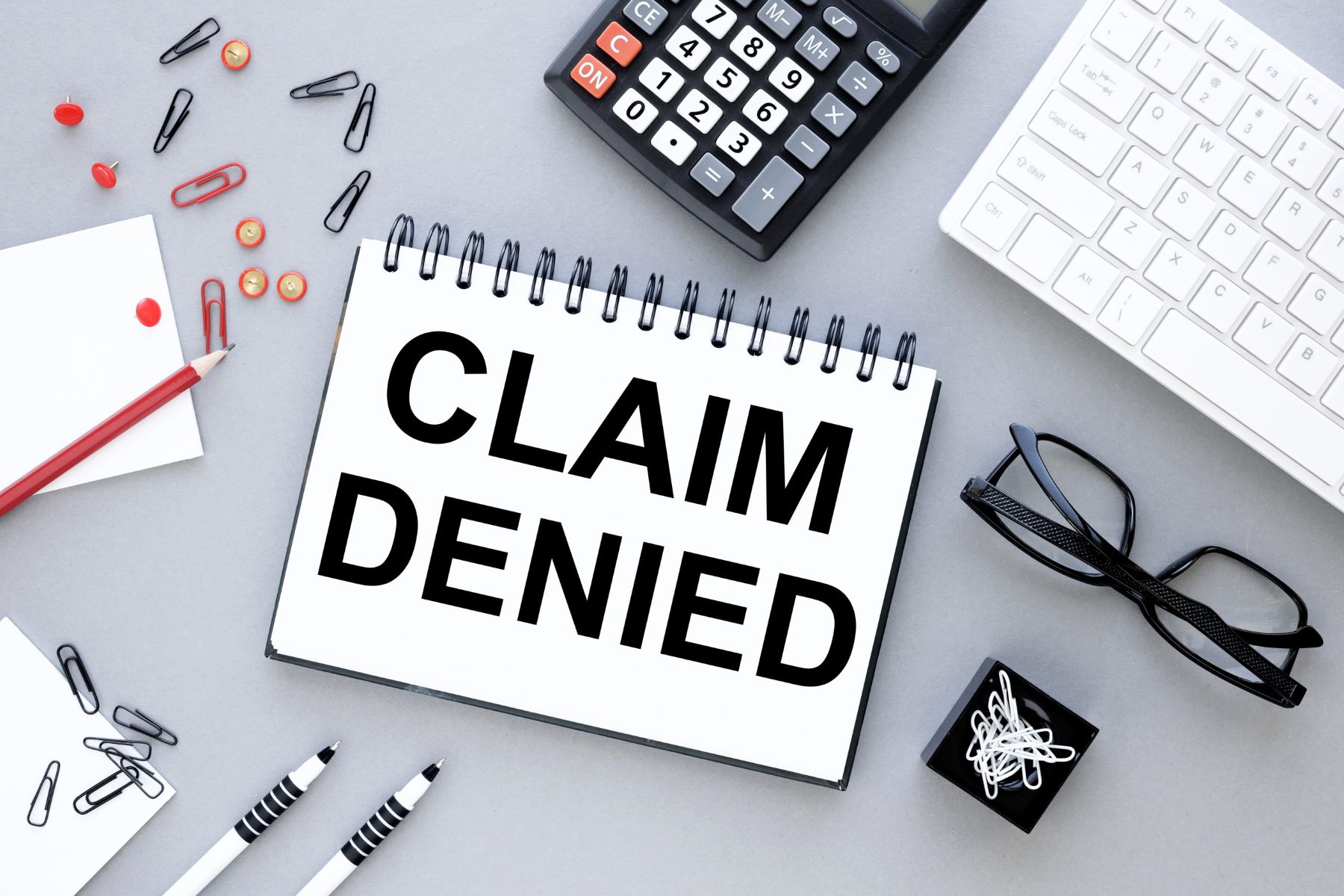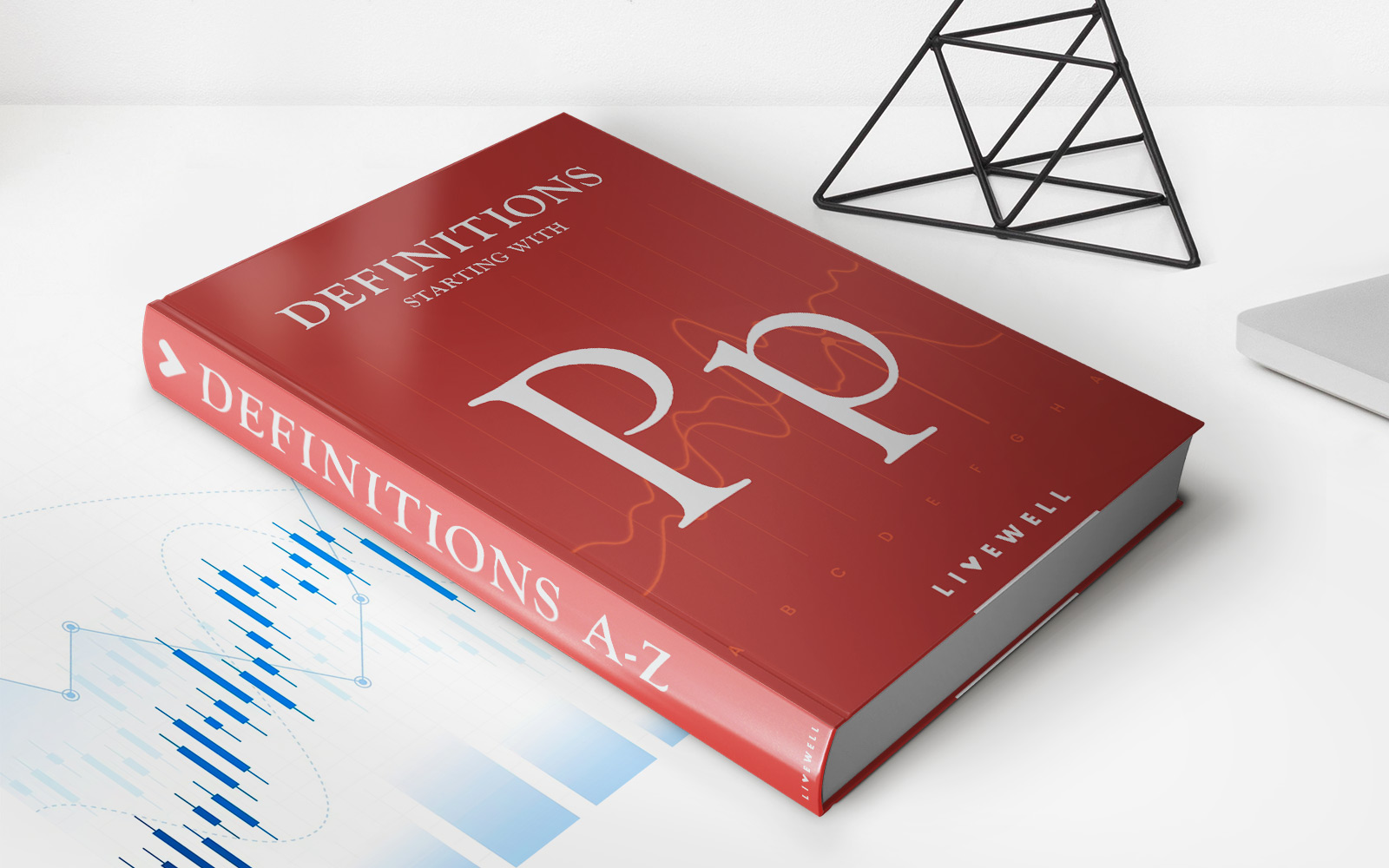Home>Finance>What Happens To My Homeowners Insurance When I Sell My House


Finance
What Happens To My Homeowners Insurance When I Sell My House
Published: November 22, 2023
Learn what happens to your homeowners insurance when you sell your house and how it affects your finances. Get expert advice on navigating insurance changes during the selling process.
(Many of the links in this article redirect to a specific reviewed product. Your purchase of these products through affiliate links helps to generate commission for LiveWell, at no extra cost. Learn more)
Table of Contents
Introduction
When selling a house, there are numerous considerations to keep in mind, from finding the right buyer to completing all the necessary paperwork. One aspect that homeowners often overlook during the selling process is the status of their homeowners insurance.
Homeowners insurance is a crucial financial safeguard that protects your property and belongings against unexpected events such as fire, theft, or damage. But what happens to your homeowners insurance when you sell your house?
In this article, we will explore the implications of selling your house on your homeowners insurance. From understanding coverage periods to navigating the process of canceling or transferring your policy, we’ll provide you with the information you need to ensure a smooth transition.
Whether you’re a homeowner preparing to sell your property or a potential buyer curious about insurance implications, this article will serve as a comprehensive guide to unravel the mysteries of homeowners insurance in the context of a house sale.
Keep in mind that homeowners insurance requirements may vary depending on your location and specific circumstances. It’s always advisable to consult with an insurance professional or legal expert to ensure you have the most accurate and up-to-date information based on your unique situation.
Understanding Homeowners Insurance
Before we delve into what happens to your homeowners insurance when you sell your house, let’s first establish a solid understanding of what homeowners insurance entails.
Homeowners insurance is a type of property insurance that provides financial protection to homeowners in the event of unexpected damage or loss to their property or possessions. It typically covers damage caused by perils such as fire, theft, vandalism, windstorms, and certain natural disasters.
In addition to property coverage, homeowners insurance also typically includes liability coverage, which protects homeowners in case someone gets injured on their property and files a lawsuit.
Homeowners insurance policies are typically annual contracts that require regular premium payments. The cost of your homeowners insurance depends on various factors, including the value of your property, the location and condition of your home, the coverage limits, and any additional endorsements you may have.
It’s important to note that homeowners insurance policies have a coverage period, usually one year, during which the policy is in effect. The coverage period starts on the policy’s effective date and ends on its expiration date.
Now that we have a clear understanding of what homeowners insurance entails, let’s explore how the sale of a house can impact your insurance coverage.
Coverage Period and the Sale of a House
When you sell your house, it’s important to understand how the sale impacts the coverage period of your homeowners insurance policy.
In most cases, your homeowners insurance policy will remain in effect until the closing date of the sale. This means that you are still covered for any potential perils that may occur up until the moment you hand over the keys to the new owner.
It’s crucial to maintain adequate insurance coverage during the sale process to protect yourself from potential liabilities. Even if you have already moved out of the house, your homeowners insurance policy will continue to provide coverage for any accidents or damage that may occur during the transition period.
Additionally, it’s worth noting that some insurance policies may also provide coverage for temporary housing expenses if your home becomes uninhabitable due to a covered loss, such as a fire or severe storm.
However, it’s essential to review the terms and conditions of your policy to understand the specific coverage provided during the sale process. Some policies may have limitations or exclusions, so it’s always best to consult your insurance provider to clarify any concerns.
Once the closing date has passed, the ownership of the house transfers to the buyer. At this point, your homeowners insurance policy will no longer cover the property. It’s crucial to communicate with your insurance provider and take appropriate action to ensure your coverage is adjusted accordingly.
Next, let’s explore the options available when it comes to canceling or transferring your homeowners insurance policy after selling your house.
Cancelling Homeowners Insurance
After selling your house, you may decide to cancel your homeowners insurance policy if you no longer have a need for coverage on that property. Cancelling your policy is a straightforward process, but it’s important to follow the proper steps to ensure a smooth transition.
The first step is to contact your insurance provider as soon as the sale of your house is finalized. Let them know that you have sold the property and provide them with the necessary details, such as the closing date and the new owner’s information. Your insurance provider will guide you through the cancellation process and inform you of any requirements or documentation needed.
It’s important to keep in mind that some insurance policies may have a minimum notice period for cancellation, typically 30 days. Make sure to inquire about any potential penalties or fees associated with early cancellation of your policy.
Upon cancellation, you may be eligible for a refund of any unused premium that you have already paid for the remaining coverage period. The amount of refund will depend on your insurance provider’s policies and the specific terms of your homeowners insurance policy.
Remember to obtain written confirmation of the cancellation from your insurance provider for your records. This will serve as proof that you have canceled your policy and can be used if any disputes arise in the future.
It’s crucial to note that canceling your homeowners insurance after selling your house does not eliminate your responsibility for any liabilities that may arise from incidents that occurred during your ownership. If a claim is filed against you for an event that happened before the cancellation of your policy, you may still be held liable. Therefore, it’s recommended to maintain an appropriate level of insurance coverage until all potential liabilities are resolved.
Now that we’ve covered the process of canceling homeowners insurance, let’s explore an alternative option – transferring your homeowners insurance policy.
Transferring Homeowners Insurance
Instead of canceling your homeowners insurance policy after selling your house, you may have the option to transfer it to your new property or to the buyer of your old house. Transferring your homeowners insurance can be a convenient and cost-effective solution, especially if you’re moving into a new home and wish to maintain uninterrupted coverage.
To transfer your homeowners insurance policy, you’ll need to inform your insurance provider about the sale of your house and provide them with the necessary details of your new property or the buyer’s information.
Your insurance provider will assess the eligibility for transferring your policy based on their underwriting guidelines and the specific terms of your policy. They may require an inspection of the new property to determine its insurability and to calculate the appropriate premium based on its value, location, and other factors.
If the transfer is approved, your insurance provider will make the necessary adjustments to your policy, including updating the insured property details and coverage limits. They will provide you with a revised policy document that reflects the transfer and any changes or endorsements that may apply to the new property.
Transferring your homeowners insurance policy not only ensures continuous coverage but also allows you to maintain any discounts or benefits that you may have earned over time, such as loyalty discounts or a claims-free record.
It’s important to note that transferring your policy may have financial implications. The premium for your new property may be different based on various factors such as the location, value, and risk characteristics of the property. Additionally, policy endorsements specific to the new property may be required, which could impact the overall cost of your insurance.
Before deciding to transfer your homeowners insurance policy, it’s recommended to compare quotes from different insurance providers to ensure you’re getting the best coverage and rate for your new property. Shopping around can help you find competitive prices and identify any additional coverage options or discounts that might be available.
Whether you choose to cancel your homeowners insurance or transfer it to your new property, it’s important to understand your rights and responsibilities during the transition period. Let’s explore what you need to know as a seller when it comes to insurance obligations.
Seller’s Responsibility During the Transition
As a seller, you have certain responsibilities when it comes to homeowners insurance during the transition period between selling your house and handing over the keys to the new owner. It’s essential to understand these responsibilities to ensure a smooth and compliant process.
One of the primary responsibilities of the seller is to maintain adequate homeowners insurance coverage until the closing date of the sale. This coverage protects you in case of any accidents or damage that may occur during the sale process, including potential liability claims. Even if you have already moved out of the house, maintaining insurance coverage is crucial to safeguard yourself against unexpected events.
During the transition period, it’s also important to review and understand the terms of your homeowners insurance policy regarding the sale of your house. Some policies may have specific requirements or restrictions that you need to adhere to, such as notifying your insurance provider of the impending sale or obtaining additional coverage if the house will be vacant for an extended period before the closing date.
Furthermore, it’s advisable to inform your insurance provider about any changes in the occupancy status of the house, such as if it will remain vacant or if it will be rented out for a period of time before the sale is finalized. Your insurance provider can guide you on any necessary adjustments to your policy to ensure continued coverage and compliance with their guidelines.
Lastly, it’s crucial to communicate and coordinate with your insurance provider and the buyer’s insurance company to facilitate a smooth transfer of insurance responsibilities. Ensure that the buyer has obtained their own homeowners insurance policy before the closing date to protect their investment and comply with any mortgage requirements.
By fulfilling your responsibilities as a seller during the transition period, you can help mitigate potential risks and ensure a seamless transfer of homeowners insurance coverage. Now, let’s explore the buyer’s responsibilities after the purchase of the house.
Buyer’s Responsibility After the Purchase
As a buyer, once the purchase of a house is complete, you assume certain responsibilities when it comes to homeowners insurance. It’s important to understand these responsibilities to ensure that your new property remains adequately protected.
One of the first steps as a buyer is to secure your own homeowners insurance policy. Most mortgage lenders require proof of insurance before finalizing the loan, so it’s essential to start the process as soon as possible. Shopping around for insurance quotes can help you find the coverage that suits your needs and budget.
When obtaining homeowners insurance, provide your insurance provider with all the necessary details about your new property, including its address, size, and any additional features or upgrades. The insurance provider will assess the property’s insurability and calculate the appropriate coverage and premium based on various factors, including its location and risk characteristics.
Ensure that the coverage limits of your homeowners insurance policy are sufficient to protect your investment. Consider factors such as the current value of the property, the replacement cost of the structure, and the value of your personal belongings. It’s also important to review the policy’s deductible, as this is the amount you will be responsible for paying out of pocket before the insurance coverage kicks in.
Once you have obtained homeowners insurance, provide the details of your policy to your mortgage lender. They will need this information for escrow and to confirm that your property is adequately insured.
Remember to review and understand the terms and conditions of your homeowners insurance policy, including any exclusions, limitations, or additional endorsements. Some policies may have specific requirements, such as regular maintenance inspections for certain property features or additional coverage for specific perils. Compliance with these requirements ensures that you remain eligible for coverage in case of a claim.
It’s also recommended to regularly review and update your homeowners insurance coverage as needed. Changes to your property, such as renovations or the addition of high-value items, may require adjustments to your policy to ensure adequate coverage.
By assuming the responsibilities of obtaining and maintaining homeowners insurance, you can protect both your property and your financial well-being. Now, let’s explore the options available to new homeowners for obtaining insurance coverage.
Options for New Homeowners Insurance
As a new homeowner, you have various options when it comes to obtaining homeowners insurance. It’s important to explore these options to find the coverage that best suits your needs and provides the necessary protection for your new property.
One of the most common options is to reach out to your existing insurance provider if you already have other insurance policies, such as auto or life insurance. Many insurance companies offer multi-policy discounts, which can help save you money on your homeowners insurance.
If you prefer to explore different insurance providers, you can obtain quotes from multiple companies by contacting local insurance agents or using online comparison websites. Comparing quotes allows you to evaluate the coverage options and premiums offered by different insurers to find the best deal.
Consider seeking recommendations from friends, family, or your real estate agent, as they may have had positive experiences with specific insurance providers. Their insights can help you make an informed decision and choose a reputable and reliable company.
It’s crucial to thoroughly review the coverage options provided by each insurance company. Look for policies that offer adequate coverage for perils such as fire, theft, vandalism, and natural disasters that are prevalent in your area. Consider additional coverage options that may be relevant to your situation, such as coverage for expensive jewelry or liability coverage if you have a swimming pool.
When obtaining quotes, make sure to provide accurate information about your new property, including its location, size, and any unique features it may have. This will ensure that the quotes you receive are tailored to your specific needs and accurately reflect the potential risks associated with your property.
Additionally, consider the customer service reputation of the insurance provider. Read reviews and check their financial stability and claims handling process. A reliable insurance company will assist you promptly and efficiently in case of a claim.
Before finalizing your homeowners insurance policy, review the terms and conditions carefully. Pay attention to any exclusions, limitations, or endorsements that may affect your coverage. If you have any questions or concerns, don’t hesitate to contact the insurance company for clarification.
Lastly, regularly review your homeowners insurance coverage to ensure that it remains suitable for your needs. As your property and circumstances change, consider updating your coverage limits or adding additional endorsements to protect your investment adequately.
By exploring different insurance options and selecting the policy that best aligns with your needs and budget, you can have peace of mind knowing that your new property is protected. Now, let’s summarize the key points discussed in this article.
Conclusion
When selling a house, it’s important to consider the implications for your homeowners insurance. Understanding the coverage period during the sale, as well as your options for cancellation or transfer, is crucial for a smooth transition.
If you decide to cancel your homeowners insurance after selling your house, make sure to notify your insurance provider and follow their guidelines for the cancellation process. Obtain written confirmation and maintain coverage until the closing date to protect yourself from potential liabilities.
Alternatively, you may choose to transfer your homeowners insurance to your new property or the buyer of your old house. Consult your insurance provider to determine if this option is available and to make the necessary adjustments to the policy.
As a seller, it’s your responsibility to maintain coverage during the transition period and communicate with the buyer and insurance parties involved. Ensure that the buyer obtains their own homeowners insurance to protect their investment and comply with mortgage requirements.
As a buyer, securing homeowners insurance for your new property is essential. Obtain quotes from different insurance providers, review coverage options, and consider any specific requirements or endorsements. Regularly review and update your policy as needed to ensure adequate coverage.
Whether you choose to cancel or transfer your homeowners insurance, it’s important to understand your rights and responsibilities during the transition. Consulting with insurance professionals or legal experts can provide specific guidance based on your unique circumstances.
Overall, navigating homeowners insurance during a house sale requires attention to detail and proactive communication. By understanding the process and staying informed, you can ensure that your property is properly protected throughout the sale and beyond.
Remember, homeowners insurance is an essential financial safeguard that provides peace of mind and protects your investment. Take the time to evaluate your coverage needs and choose a policy that provides comprehensive protection for your new home.














